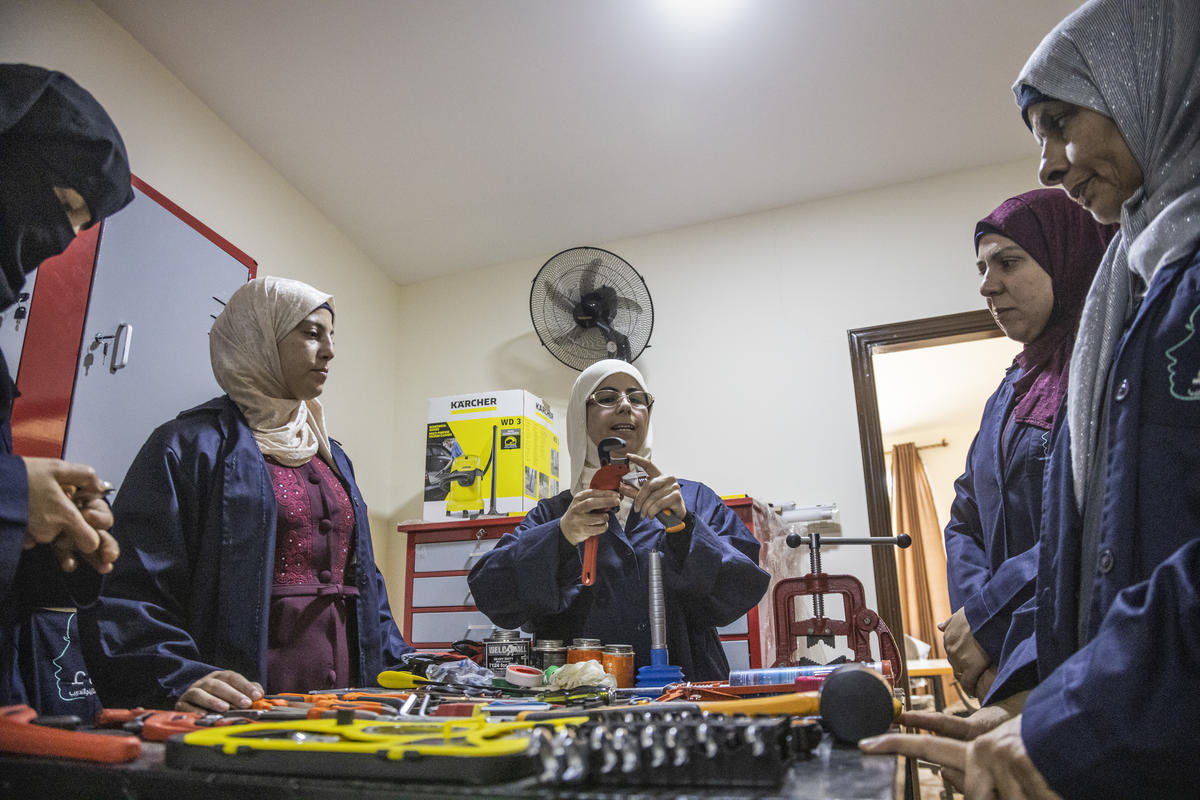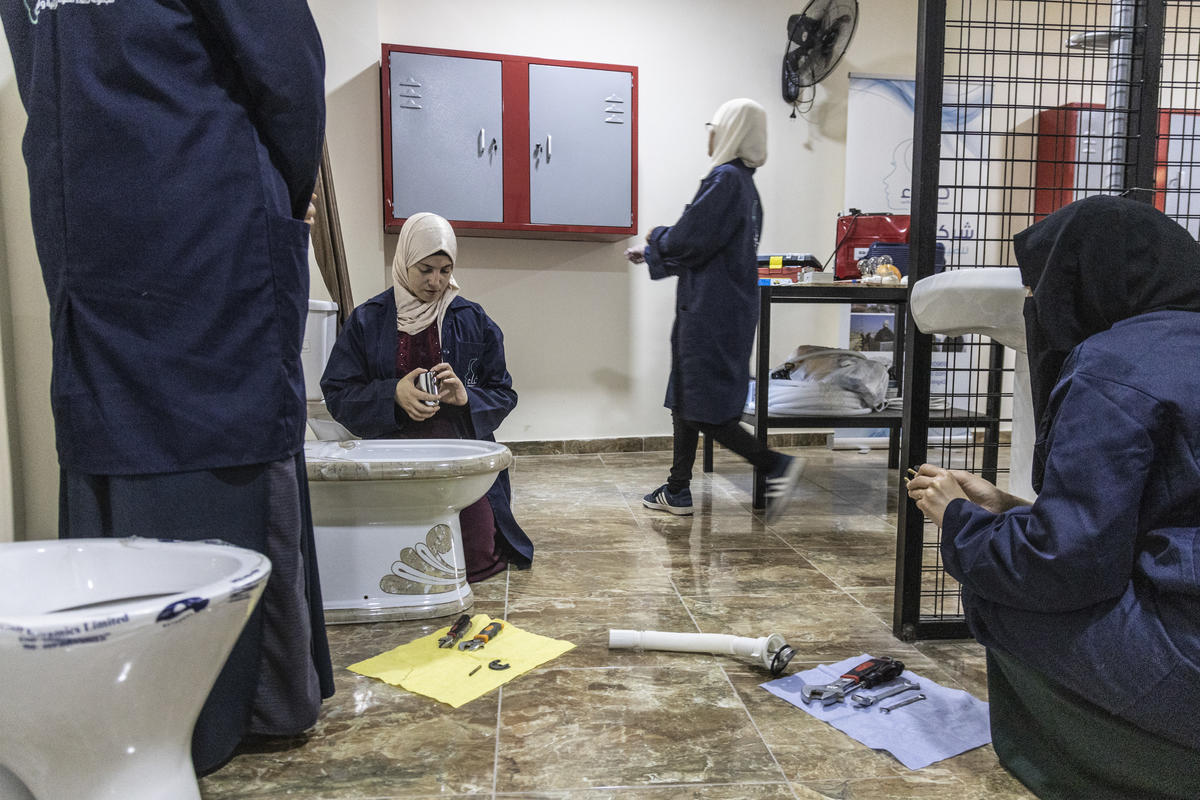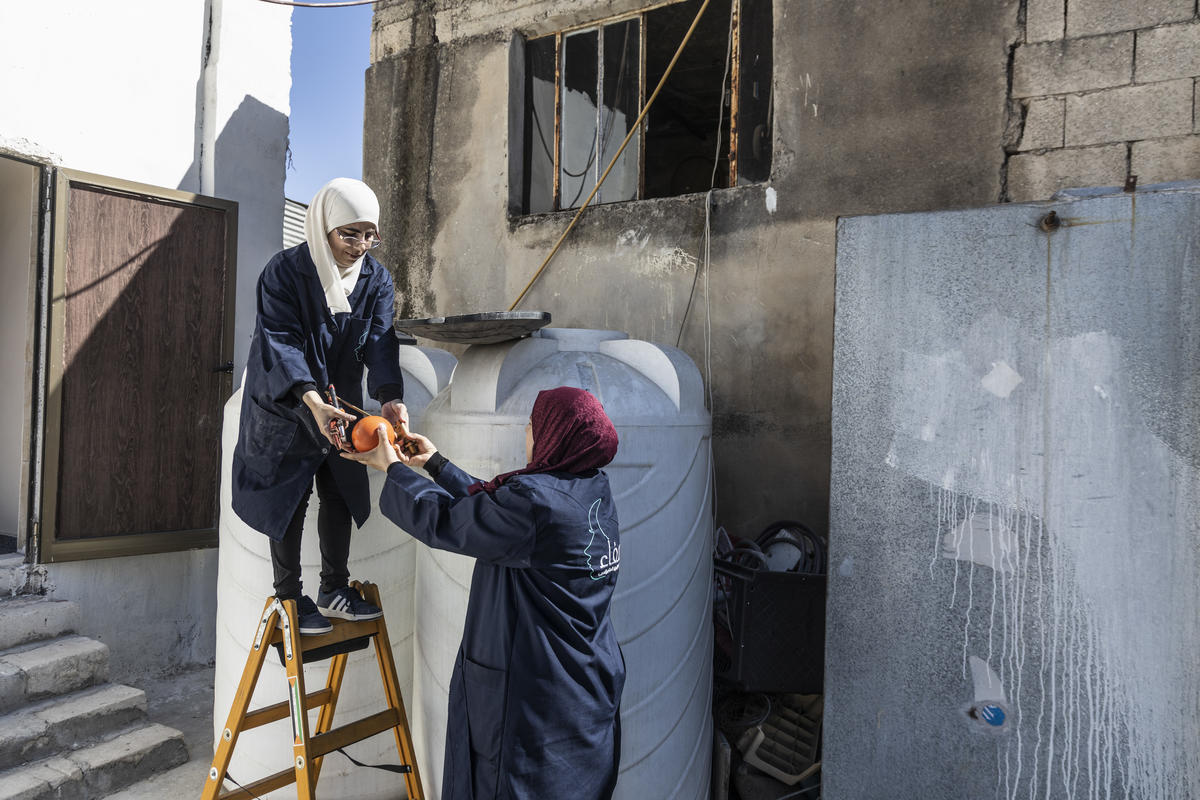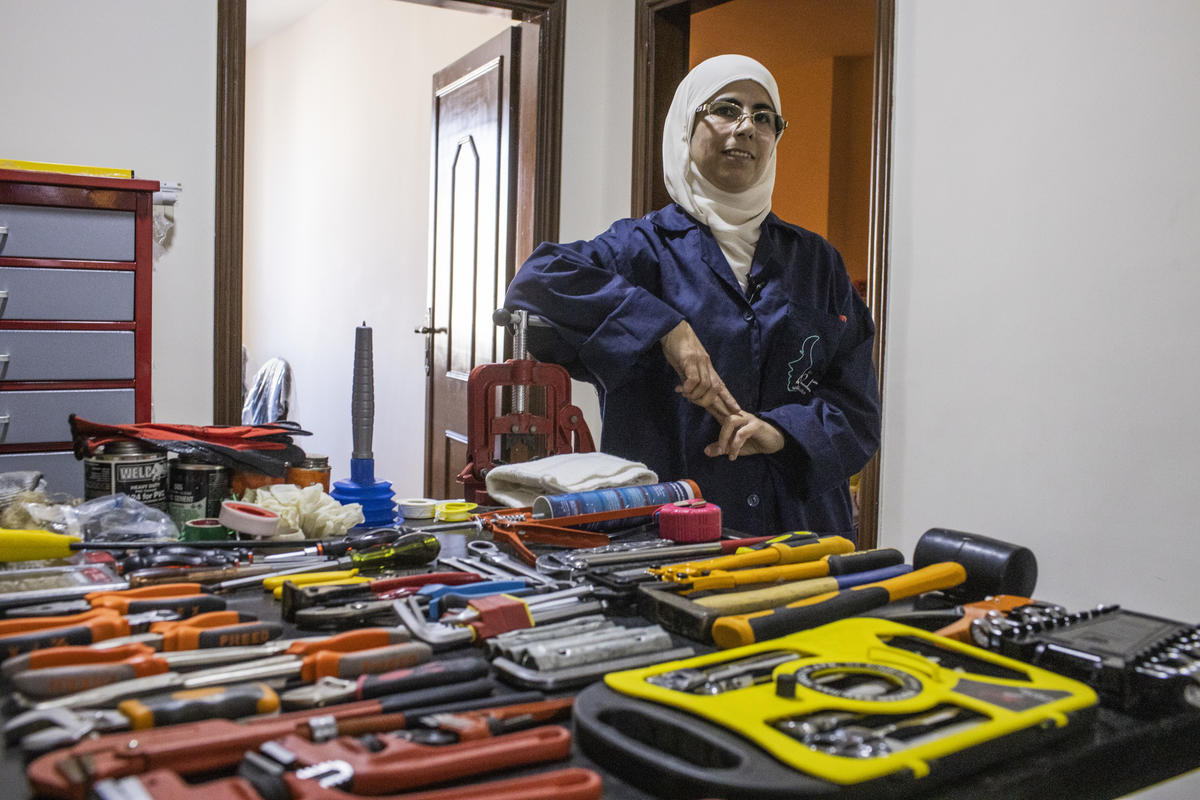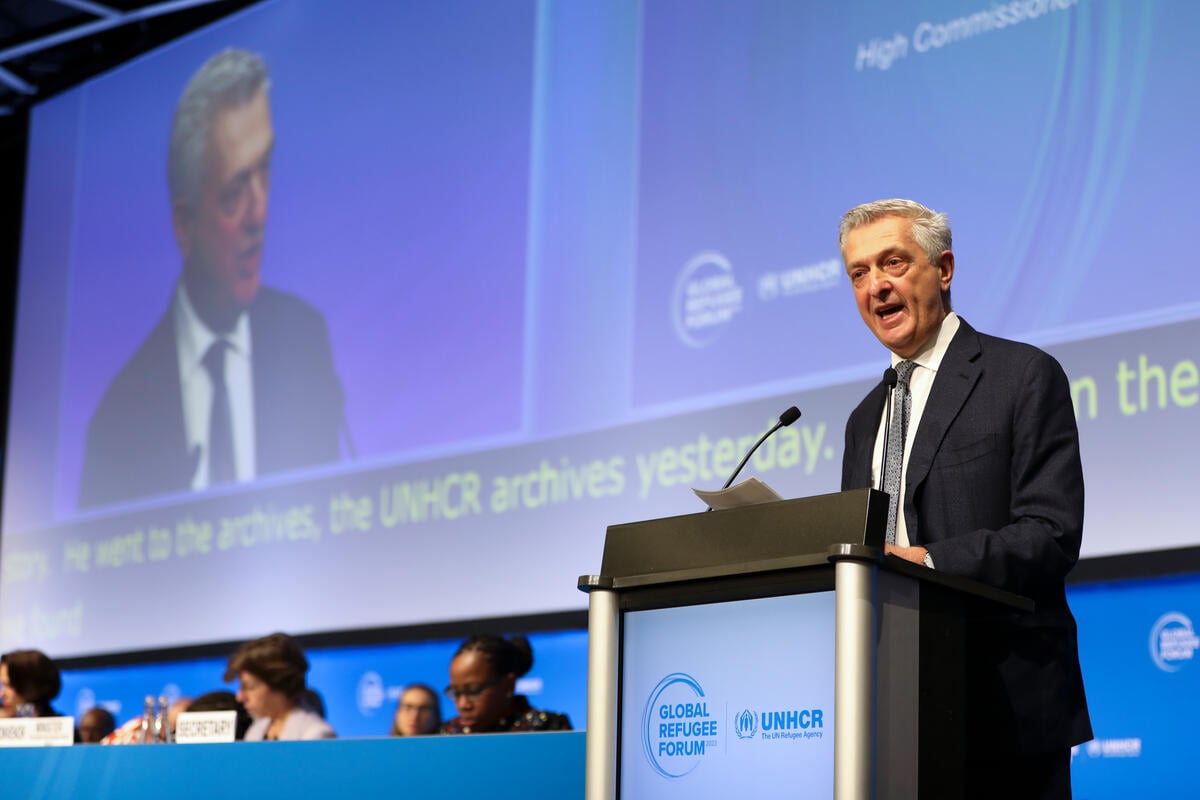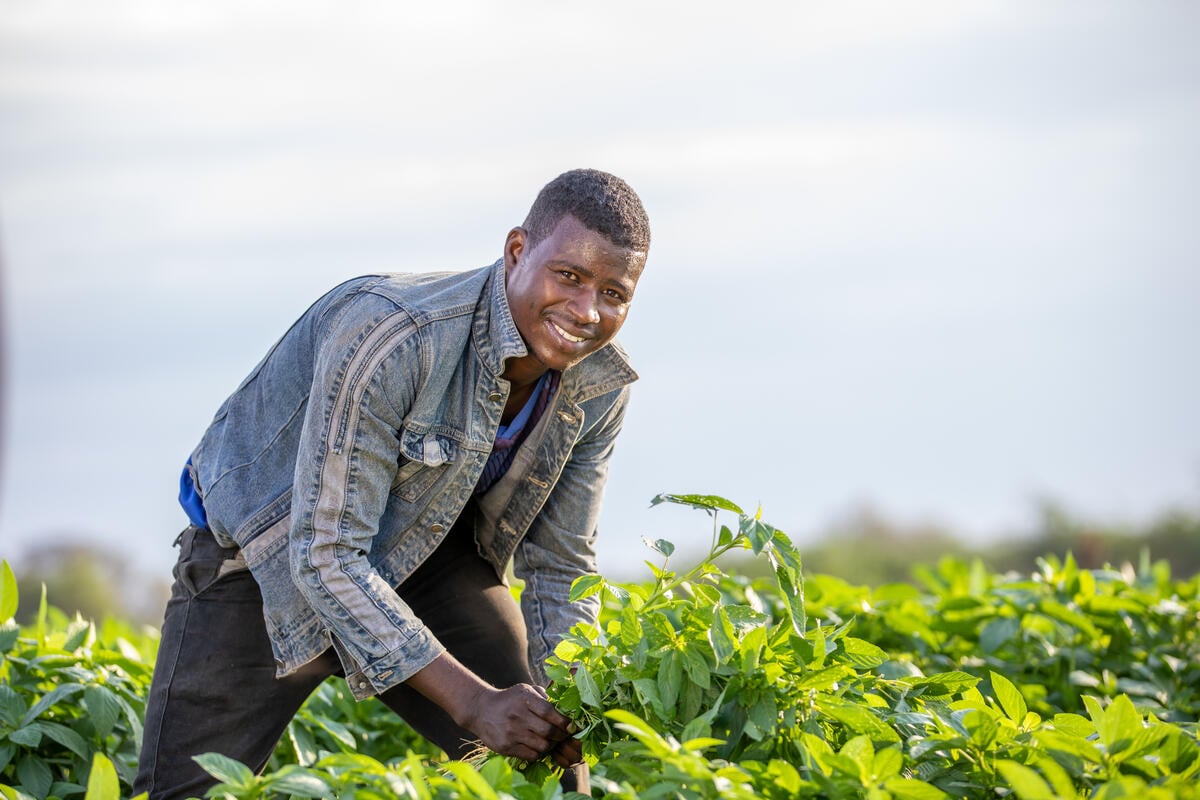Jordan's accidental plumber trains team of Syrian refugee women
A former jewellery designer, Safaa had signed up for the gold casting workshop on a nostalgic whim. It was only when she and four friends she had brought along arrived at the training centre that she realized her mistake – the Arabic word for metal casting, sabaka, had another meaning in Jordan: plumbing.
“I was shocked, and we were the only women there,” she remembers. “I took a step back and said ‘I am out’, but my friends encouraged me.” She only made up her mind to stay when she learned that the trainer was a woman from Germany. “If she can do it, why can’t we?” she said to herself.
The 45-year-old dual Jordanian/Syrian national had lived most of her life on the outskirts of the Syrian capital Damascus. But after her home was destroyed and her business looted during the country’s civil conflict, in 2014 she and her Jordanian husband relocated to his hometown of Irbid in the north of Jordan.
Though not a refugee herself, she was nevertheless forced to rebuild her life in a new city from scratch. With her husband unable to work due to a stroke, Safaa decided to throw herself into the training. The fine art graduate found herself increasingly drawn to the problem solving and system design elements of plumbing.
"I try to help women empower themselves."
The course lasted for two months, and Safaa admits that she and her friends were still novices by the end. They started doing repairs in their own homes to gain experience, before moving on to helping out friends and family.
“In the beginning, repairing a [toilet] would take us almost the whole day, then half a day, and now it takes us as long as other male plumbers – maximum half an hour,” she says.
“Over time, I started to expand. I would do the houses in my area and my friends would do the ones near them. We worked for almost a year just to practice,” she explains. “Then we thought: ‘Why not open our own thing? Why work for free?’”
Today, Safaa has a nationwide business as well as the region’s only training centre for female plumbers. She has trained hundreds of women, and currently provides work for 36 freelance plumbers, more than half of whom are Syrian refugee women.
"It brings in an income and helps with the living costs."
“I try to help women to empower themselves financially and socially,” Safaa explains. “Many of their husbands have stopped working, so it is useful for them to use this skill to generate an income for their families.”
One of her current trainees, 43-year-old Syrian refugee Buthayna, says that although she is still learning the basics she has found odd jobs in her neighbourhood and would like to pursue it as a career.
“People will always say it is a man’s job, but I have no problems,” she says. “It brings an income and helps with the living costs and my children’s education.”
Providing refugees with training and employment opportunities is central to boosting their self-reliance and reducing dependence on traditional forms of aid. Access to safe and decent work allows them to provide for their family’s basic needs as well as prepare for the future, whether they return home, remain in their country of asylum or resettle in a third country.
Economic inclusion of refugees will be one of the topics under discussion at the Global Refugee Forum, a high-level meeting to be held in Geneva later this year. States, the private sector and other actors will announce high-impact contributions that will give refugees a chance to use and further develop their skills and contribute to economic growth in their host communities.
In Jordan, the participation of refugees in the agriculture, construction, manufacturing and hospitality industries has enabled them to make a positive contribution to the country's economy.
When it comes to the reactions that Safaa elicits when carrying her tools to jobs in her blue overalls and headscarf, she says the responses have been mostly positive, and she has learned to ignore those that are not.
"I am very proud of myself."
“A woman is the carpenter, the blacksmith and the plumber in her own house – it is just normal. But if she goes and does this work at someone else’s house, it becomes unusual,” she says. “Part of my persistence in doing this job is to challenge stereotypes and break taboos, so I am very proud of myself and the women working with me.”
Far from being a novelty or curiosity, Safaa believes she and her team of mostly female plumbers may have found an untapped market. “Many of our female clients prefer to have women working in their homes rather than men, so even though it may seem an unusual idea, it makes sense.”
Asked about her future ambitions, Safa’a reaches for her laptop and proudly displays a mock-up of a white van filled with tools and parts, with her company’s logo emblazoned on the side. “None of us has a car, so at the moment we still have to take taxis and public transport. I would love to have a van.”
A process that began four years ago with a mistranslation is now well and truly complete, according to Safaa. “Jewellery will always be my passion, but now if people ask me what I do, I tell them I’m a plumber.”



